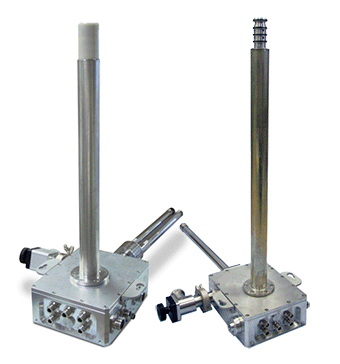
Cold probe technology has matured, and liquid nitrogen cold probes provide significantly higher sensitivity than standard room temperature measurements. Using liquid nitrogen as the cryogen produces much lower operational expenses than Helium cryostat probes.
An N2 SuperCOOL probe can accomplish overnight what a room-temperature probe would take a full weekend or more to perform.
The webinar will present examples of routine one- and two-dimensional NMR data collected with this fully broadband probe, including measurements of normally difficult-to-access carbon-carbon direct and long-range coupling channels and J values.
Many helpful experiments, including 13C and 1H detected examples, will be detailed. An introduction to the unique and extremely convenient cryogenics technology will also be presented.

Image Credit: JEOL USA, Inc.
About the Presenter
Ron joined Burroughs Welcome Pharmaceuticals after graduating from Elon University, where he had the opportunity to work alongside Nobel Prize winner Gertrude Elion and other world-class scientists. His close collaboration with Gary Martin added valuable expertise to his nine years at Welcome.
He left the pharmaceutical sector to pursue his passion for NMR as R&D Manager at Nalorac Corp. He then worked at Varian NMR in Applications for many years until Agilent NMR’s demise. Since then, he has been working with JEOL USA, pursuing NMR and learning in-depth about it.